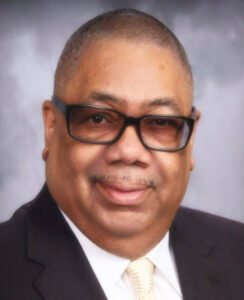
By Rev. Donald L. Perryman, Ph.D.
The Truth Contributor
Stop trying to be color-blind. Be color-brave.
– Vernā Myers
Executive orders dismantling key Diversity, Equity and Inclusion (DEI) policies within the federal government and President Donald Trump’s dogged political pressure on companies and institutions to abandon DEI efforts have the nation grappling with a landmark challenge.
A hoard of high-profile corporations like Google, McDonald’s, Walmart, Ford and Target have wilted under the sweltering political heat and have abandoned or scaled back their diversity commitments. Others, including major financial institutions such as Morgan Stanley, JPMorgan Chase, Citigroup, Wells Fargo and Bank of America, have quietly scrubbed public mentions of DEI, rebranded existing strategies, or taken their efforts underground.
Meanwhile, bold, principled brands like Apple and Costco have openly resisted the relentless coercion campaign, urging shareholders to instead validate and uphold inclusion strategies.
The truth is that extensive, credible research studies confirm that DEI has “never been about lowering standards but ensuring fair opportunities.” Moreover, the demand for DEI efforts is back to a 2020 high following the murder of George Floyd, according to a report from the Edelman Trust Barometer.
Yet, despite overwhelming evidence that DEI enables organizations to attract a wider range of talent (and) reach different consumers, reduces employee attrition and increases employee motivation, the mounting legal and political threats against DEI have profound implications for workplace equity and civil rights, making its future uncertain.
Where do we go from here?
Indeed, many companies jumped on the bandwagon after George Floyd’s May 25, 2020 killing, offering a “performative allyship” of abstract intentions without prioritizing measurable outcomes and impact (policy changes and enforcement), let alone the adequate support, budget, infrastructure, and other resources needed for success.
In addition, too many mainstream DEI programs scuffled due to superficial training offerings, one-off bias or anti-racism workshops that don’t change behavior, or corporate lip service that included companies hiring chief diversity officers but not giving them real power.
Nevertheless, Kimberle Crenshaw, executive director of the African American Policy Forum, made it clear during a panel convened by the National Urban League’s Emergency Session on DEI that pivoting, rebranding or softening DEI won’t work.
The brutal political attacks on DEI, Crenshaw emphasized, are not just about training programs but are part of a larger rollback of Civil Rights victories and aligned with efforts to erase Black history, attacks on Critical Race Theory (CRT), legislative bans in education and efforts to dismantle affirmative action and voting rights protections.
The attack on DEI is at a time when “those who represent the best of our values are looking for jobs, and those who represent the worst of our nightmares are being pardoned and released from prison. Therefore, we cannot afford to compromise or retreat in the face of such historic resistance to Civil Rights progress … We have to fight collaboratively, we have to fight collectively, we have to fight creatively, but we also have to fight with the idea that we refuse to allow any of what we have created to be lost,” Crenshaw added.
What is the Next Move?
Will DEI survive? Will it remain but become a watered-down, feel-good initiative that comforts the powerful while failing the marginalized? Or will it indeed become a force for structural change?
In the coming weeks, I plan to speak with local corporate executives, university administrators, and community leaders to ask tough questions about the state of DEI:
Have their DEI programs actually improved hiring, promotion, and pay equity for African Americans? What measurable outcomes can they point to beyond mission statements and symbolic gestures, such as themed marketing or Juneteenth sales that exploit Black culture without providing substantive authentic investment? How do they navigate the political backlash against DEI while advancing racial equity? Are they willing to fight more aggressively to protect racial progress rather than merely pivot or retreat?
These interviews seek to provide real answers about whether DEI is still a viable tool in Toledo for racial progress—or if it’s time for African Americans to look within or elsewhere for economic and social empowerment.
More to come – Watch this space!
Contact Rev. Donald Perryman at drdlperryman@enterofhopebaptist.org
